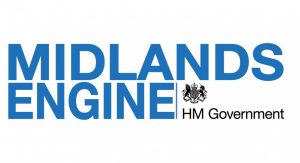(Any) reasons to be cheerful? How business owners see the year ahead

Just how do East Midlands business owners and leaders feel about the economy as we begin 2025?
Read the doom-laden missives on LinkedIn and you could be forgiven we’re headed for Armageddon – but there is no doubt there are some very genuine concerns out there among the hyperbole.
However, a recent survey of East Midlands businesses carried out by Lloyds – taken in the week after the Autumn Budget, shows that many entrepreneurs are relatively upbeat about the year ahead.
As the pressure grows on Chancellor Rachel Reeves, TheBusinessDesk.com asked entrepreneurs from different sectors how they see the economy for the year ahead for their businesses.
Construction and Property

Ian Hodgkinson
DIYSOS Project Manager and Building Consultant, Ian Hodgkinson
“While the Lloyds survey highlights optimism for 2025 in the East Midlands, I believe the reality for many businesses will be far tougher than the survey suggests.
“The combination of stubbornly high interest rates and the lingering impact of past inflation has left cash flow and liquidity in a precarious position for countless firms.
“Rising National Insurance contributions and increasing tax burdens are further exacerbating these pressures, forcing businesses to rethink investment and operational priorities. Affordable borrowing has all but disappeared, leaving many struggling to cover day-to-day expenses, let alone plan for growth. In the construction and housing sectors, these challenges are magnified.
“Developers face unrelenting affordability constraints, combined with the financial and regulatory burdens of Biodiversity Net Gain (BNG) and nutrient neutrality compliance. These obligations are squeezing margins at a time when the cost of materials and labour remains unsustainably high.
“For many businesses, 2025 will be less about optimism and more about survival. The reality of cash flow pressures, regulatory burdens, and the cost of doing business suggests that the year ahead will be one of the toughest in recent memory.”

Jinny Yang
Jinny Yang, JYD Group
“The combined effects of the UK budget, inflation, geopolitical tensions, and systemic risks create a challenging environment for 2025.
“SMEs and property owners will need to adopt proactive strategies to navigate higher costs, interest rate volatility, and uncertain market conditions.
“Strategic financial planning, operational efficiency, and adaptability will be critical to mitigating these risks and capitalising on opportunities in the evolving landscape.
William Wall, director, Eddisons Lincoln
“October’s Budget is still featuring strongly in business discussions, with employers’ raised NI contributions probably the most debated. The statement’s fallout is also likely to lead to a slowing of interest rate cuts to levels above where some were originally predicting. That can impact on the property market and while there is an argument to suggest that the housing market is getting used to higher rates – with mortgagees on longer term fixes yet to experience the pain – the commercial market becomes trickier, with both loan and development finance impacted at much higher rates.
“Looking ahead to the coming year, some commentators suggest that the overall economic picture is now one of a slowing improving position across the corporate sector with, perhaps, some slight pressures on inflation.
“Otherwise, it’s a picture of stability – subject, of course, to national political and geopolitical caveats – and lowering of base rates through to 2027, with an overall improvement of ‘wellbeing’ after quite substantial shocks over the last 10 years or so.”
Technology

Neil Shaw
Neil Shaw, joint founder and director of Castle Donington-based IT managed service provider True MSP
“We are 100 per cent in the optimistic camp for business growth in 2025, and fully agree with the Lloyds’ survey.
“Our business model allows us to plan with confidence what the next 12 months should look like and, coming off the back of 2024, which was our best year to date, we are heading into 2025 expecting another strong year of growth.
“We have six new starters joining us this month and plan for many more before the summer to support our new clients and widen our service offering, which will include AI to enable businesses to automate and streamline their businesses.
“We have several exciting projects bubbling away in the background to support the expected growth and are playing ‘all-in’ for a fantastic 2025.”
Ben Dorks, CEO of Nottingham-headquartered software company Ideagen
“I’m not at all surprised by the optimism we’re seeing from businesses in the East Midlands heading into 2025, you only have to look at the number of global businesses with their roots here.
“This region has consistently demonstrated resilience and a forward-thinking approach, driven by innovation, strategic investments, and a strong sense of community. With a thriving tech sector, outstanding universities fueling talent, and excellent transport links, the East Midlands is uniquely positioned not just to overcome challenges but to seize the opportunities ahead.”
Professional services
Mark Tuckwell, managing partner, Dains
“For us, the general sentiment would perhaps be described as ‘cautious optimism’. For many businesses, 2024 was a positive year with sustained or enhanced growth levels. That direct positivity being offset slightly by a wider Q4 2024 economic tide, including rising interest rates and a feared first Labour government Autumn Budget.
“Interest rate rises have however halted and the Budget was perhaps not as bad as feared for many. The main ‘business as usual’ cost hurdle (the increase in NIC) is undoubtedly going to be at least partly offset by lower pay rises, which may well have knock on impacts.
“The ‘optimism’ in many cases relates to continued top line growth – a belief, confidence or in many cases visibility, that the business opportunities are there. The ‘caution’ attaches more to sustaining profitability, with investment focus potentially diverting to training, technology and driving efficiencies, rather than more forward-looking strategic plans.”

Mike Dickinson
Mike Dickinson, managing director at Nottingham-based insurance broker and risk management firm Russell Scanlan
“We’re looking forward to building on what was a strong period of growth for Russell Scanlan in 2024 and are looking ahead into the new year with optimism. Over the last 12 months, the business has expanded significantly, following the acquisition of Leicester-based specialist insurance firm Building & Land Guarantees in March, as well as the launch of our new co-brand with Acrisure UK.
“While recent economic changes outlined in the October Budget, such as the hike in National Insurance Payments, will impact us like any other business, we’re continuing to take a positive approach to the year ahead. Working more closely with Acrisure has opened up a whole network of new partnerships and opportunities for us, where we can work more closely with the global brand, as well as other Acrisure-acquired businesses, to consolidate our position of one of the UK’s leading chartered insurance brokers and risk managers.”
Damon Brain, chief executive officer, Duncan & Toplis
“There are mixed feelings amongst East Midlands businesses about the business outlook for 2025. Many have ambitious plans but they’re cautious to implement them during times of labour shortages, tax increases, wage inflation and rising operational costs.
“Labour shortages are often high up on the list of business challenges, yet the Government’s Get Britain Working whitepaper shows positive signs of this being addressed. It has seen the Government commit to tackling the biggest drivers of unemployment and inactivity and promise the ‘biggest employment reforms in a generation’. As always, the proof will be in the implementation and businesses do need to see a positive impact sooner rather than later in order to improve confidence.
“Wage inflation is another challenge that comes with this. Whilst many are supportive of the sentiment of the National Living Wage, the increase we’ll see to this in April is a reason for some businesses to be nervous – as is the increase to employer National Insurance. The nation’s biggest line of expenditure will be increasing and this will inevitably mean that businesses will need to think hard about how many employees they can afford and how they operate.
“And wages aren’t the only cost increasing – while inflation has eased compared to previous years, operational costs are steadily climbing once again. For businesses managing complex supply chains, manufacturing facilities or large teams, there is a need to stay vigilant regarding cost control.
“Verdict: Clients have ambitious plans but labour shortages, tax increases, wage inflation and rising operational costs are leaving them cautious.”
Engineering

Carrie Booth
Carrie Booth, business development manager at East Midlands-based civil and structural engineering company BSP Consulting
“BSP Consulting has been in business for 25 years and 2024 was our best year, with our highest turnover to date, so we are going into 2025 from a strong starting position.
“We are a multi-sector SME with around 60 employees, and our two main challenges in 2025 will be finding and retaining good engineers as the skills shortage remains. We will also need to absorb the cost of the 15% rise in company National Insurance contributions whilst remaining competitive when bidding for work.
“The £5bn boost to deliver the UK Government’s housing plan, which includes increasing the affordable homes programme, will be positive for us, providing the planning system can be unblocked to accelerate housebuilding.
“We are keen to remain a multi-sector business working on a range of interesting schemes in the East Midlands and throughout the UK for both public and private sectors. Overall, we are feeling quite optimistic about 2025, but are aware we need to remain innovative, invest in technology and maintain engineering excellence.
“My personal challenge will be to keep opening doors to new clients and ensure we secure a place on a wide range of frameworks to provide more opportunities for future work.”
Third sector
Andrew Redfern, chief executive of Framework
“As matters stand, the impact of the government’s plan to increase the rate of Employers’ National Insurance dominates our field of view.
“From April, unless something is done to change the situation, £1.4 billion that should be used to deliver services to a wide range of people in need will be diverted to fund the increased wage bill of the charities and other organisations delivering those services.
“At Framework we have been making the case for some time that the inadequate supply of housing, the decommissioning of prevention work, and the catastrophic loss of funding for supported housing, have all played their part in fuelling the housing crisis and the increase in rough sleeping.
“So far the new government has done nothing to reverse the mistakes of the last one. Instead this unexpected rise in employers’ national insurance contributions will make a bad situation worse.
“For Framework this increase means an additional bill of £1.1 million a year to pay for Employers’ National Insurance contributions, in addition to the extra £700,000 required to cover the increase in the National Living Wage.
“Heroic work has been done by colleagues across the organisation to make savings in recent years that have enabled us to continue balancing the books. But the cost-saving has been done: finding a further £1.8m a year of savings is a huge challenge.
“So the government needs to extend to the charity sector the exemption from this increase that has been granted to the public sector (local government and the health service for instance). The only alternative for organisations like Framework to remain viable will be to make cuts to frontline services.
“Framework is making the case as vigorously as possible to ensure this situation is avoided. Among other things we have made a video explaining the situation faced by Framework, and the charity sector as a whole, and the dire consequences for people in need if nothing changes.”
Manufacturing

Peter Simson
Peter Simson, director at Tyron Runflat
“We see business for Tyron Runflat remaining strong throughout 2025. With over 96% of our products exported to locations around the globe, in Europe, North America, Africa and Asia, means many of our customers have not been affected by the recent Chancellor’s budget revisions.
“In the UK, we can see the Budget is having an impact, but we remain positive the business outlook for Tyron Runflat will continue on an upward growth trend, as our Multiband product continues to ensure vehicle safety for our customers in these times when road safety is of critical importance.”
Peter Simson, director at Gaslow International
“We at Gaslow International remain optimistic for 2025. Across the leisure sector we are seeing people value refillable cylinders further, as the move away from single-use cylinders continues. Additionally, while leisure businesses have had mixed feedback regarding the Budget, we remain upbeat that public spend on leisure products will remain steady as people value their hobby and holiday time – especially as we get into Spring and the warmer months of 2025.”
Higher education
Dr Sayantan Ghosh Dastidar, senior lecturer in economics at the University of Derby
“According to projections by the Office for Budget Responsibility (OBR), the UK economy is forecast to grow by two per cent in 2025. However, significant challenges and uncertainties remain, underscoring the fragility of the recovery.
“Key risks include post-Brexit trade issues as well as the conflict in Ukraine.
“Key challenges include sector as well as policy challenges. Post-Brexit, sectors such as manufacturing and services, are struggling to adapt to evolving trade dynamics and potential uncertainty linked to rising geopolitical tendencies around the globe. This poses a risk to export-driven growth and service sector expansion, which are traditionally strong areas for the UK.
“Analysis suggests that policies in the Autumn 2024 Budget may provide a short-term boost through increased government spending. However, these gains are expected to be offset by tax rises and the “crowding out” of private sector activity, such as investments and exports.
“The Bank of England’s cautious approach to reducing interest rates has further constrained consumer spending and business investments. A faster reduction in bank rate could stimulate economic activity by encouraging consumption and investment.”









